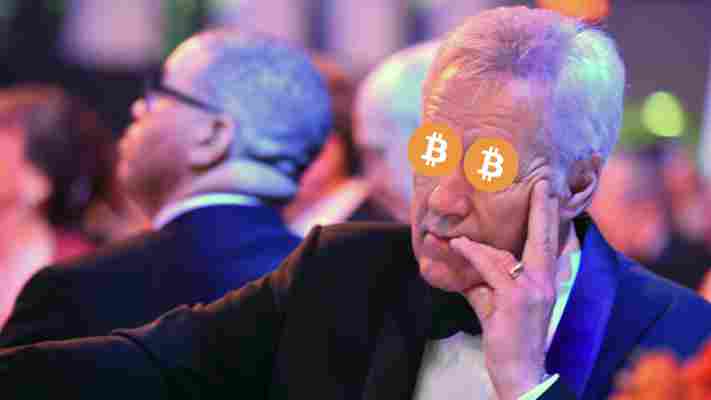It’s a common narrative that cryptocurrencies will provide a platform for the millions of unbanked individuals in the world to obtain financial freedom.

In the developing world, around 50 percent of people over the age of 25 have a bank account. This is nearly half what is seen in the likes of North America.
Credit: Diar
If anywhere in the world needs access to more cost effective financial systems its those in developing nations, where the cost of sending money without a bank account can be prohibitively expensive.
Cryptocurrency in developing nations
According to World Bank figures compiled by Diar , sending money from Angola to Namibia, for example, can be subject to a 20 percent fee. It’s quite common for transfer fees to be over 15 percent. Where as in places like the US, Switzerland, and Germany, fees are well below 10 percent.
If you have to make regular payments to family abroad, this can add up quite quickly. Chances are if you’re using these kind of systems, like MoneyGram or Western Union, it’s because you have no other options. In many places in Africa, Money Transfer Operators (MTOs) have exclusivity clauses meaning there is no competition to help drive prices down.
Unfortunatley, most of the cryptocurrecy pushed into developing parts of the world (where people face financial exclusion), have been less than savory.
In countries like Venezuela, President Maduro has used his own imaginings of what cryptocurrency should be to push his agenda on a country that really doesn’t need it. And places like Argentina are being sold the dream through potentially costly and exploitative Bitcoin ATMs that seem never to materialised, despite repeat promises.
So what will it take to crack the developing world?
In a recent interview with Diar , Coinbase’s Vice President, Dan Romero explained how dealing with the developing world is a different kettle of fish to what we’re used to. It seems we can’t simply take the Bitcoin blueprints for the developed world and apply them. They will need some modification.
“Use cases in developed markets will be different to those in emerging markets as the US and Europe have a fairly well-developed financial system,” Dan Romero told Diar. “Our mission is to build out the ecosystem so that we can move away from the narrative of [cryptocurrency] only being a speculative investment. We need to move the technology into the Utility Phase.”
Indeed, taking cryptocurrency to a developing world when we still cannoy be sure of its long-term volatility, is not just potentially exploitative, it’s irresponsible. It’s all fun and games investing in cryptocurrency, until you lose your life’s savings.
Coinbase is branching out
Romero went on to tell Diar, “[w]hat you’ll see in 2019 and beyond is a big push to dramatically expand the number of countries offering an easy on-ramp into crypto. We are actively exploring countries in Latin America, Africa and South East Asia.”
In the case of the Petro, it was very much forced on Venezuelans, and most other places rely on Bitcoin ATMs to purchase cryptocurrency, which charge high fees, and don’t always give the best exchange rates. The on-ramps are, for the most part, exploitative when targeted at individuals who aren’t well versed in the world of cryptocurrency.
According to Romero, Coinbase makes a careful judgement when looking into new markets. The country’s regulatory stance, currency volatility, banking infrastructure, age, demographics, and smartphone use are all taken into consideration before pursuing the opportunity.
Going into a country with a wildly inflationary economy, unsupportive regulations, and questionable banking infrastructure is no doubt a warning sign the country might not be ready for digital currencies.
“Our first priority for us is to educate people about crypto[currency]. We’ll have to tailor our approach to address the specific questions and needs that are unique to each region that we operate in,” Romero further told Diar.
Taking those measures into consideration, along with an education-first strategy, makes Coinbase’s approach for entering developing markets seem logical, rational, and ethical.
Though, as a well-established company, entering these unknown markets poses a risk, which might go some way to explaining the exchange’s caution.
Whatever happens, 2019 looks to be the year cryptocurrency companies go their best to break into markets once deemed too risky.
Jeopardy! adds Bitcoin ransomware to its GOAT tournament
Bitcoin appeared on last night’s Jeopardy! , when three champions fighting to be crowned Greatest of All Time were quizzed on cybersecurity.

The world’s most popular cryptocurrency was the correct answer for the category’s $800 question : “A ransomware attack that encrypted 3,800 city of Atlanta computers demanded 6 of these digital items to unfreeze them.”
Contestant James Holzhauer, a professional sports gambler, answered it successfully.
The question refers to an unfortunate situation in 2018, when the City of Atlanta paid more than $2.6 million to unlock computer systems held by hackers for a $52,000 Bitcoin ransom.
For reference, here are the other questions featured in last night’s cybersecurity category.
For $200: This type of hacker referred to by a colorful bit of headwear helpfully tests computer systems for vulnerability. (Answer: white hat).
For $400: A website with a site certificate is one that uses encryption; this letter after HTTP is one sign of it. (Answer: S).
For $600: Companies consider cybersecurity when instructing employees with a policy on BYOD, short for this. (Answer: Bring Your Own Device).
For $1000: Beware of these types of programs that track every stroke you make while typing in an effort to glean your password. (Answer: keylogging programs).
Bitcoin ransomware was everywhere in 2019
This is hardly the first time Jeopardy! has included Bitcoin-related questions. In fact, the show has a long history with cryptocurrency, having featured an entire category specific to the technology back in 2018.
It included questions about Maduro’s purportedly oil-backed Petro token, an abandoned Kanye-inspired crypto called CoinYe , and even Kik messenger’s ill-fated cryptocurrency KIN .
Cryptocurrency fans might however find it frustrating that Jeopardy! used Bitcoin to answer a question specific to ransomware. After all, critics often cite hacker-lust for Bitcoin as proof that world governments should do more to restrict the technology.
The sad reality is that Bitcoin-fueled ransomware was huge in 2019. Malware campaigns like Ryuk terrorized government organizations and private enterprise around the world all year, demanding millions of dollars in Bitcoin ransom payments to release maliciously-encrypted data.
There’s no signs of it slowing down, either. This week, Hard Fork reported that a malware strain known as Sodinokibi had hit foreign exchange firm Travelex, and hackers were requesting $6 million (likely in cryptocurrency) to return access.
Alors Monsieur Macron, stop trying to make la chaîne de blocs happen
It seems French President Emmanuel Macron wants to leverage the power of blockchain technology to make the agriculture industry more innovative, transparent, and put Europe in the “avant-garde of agricultural technology”.

Macron, who is known for his advocacy of free market and self-proclaimed liberal policies, commented on blockchain’s potential during a speech at the International Agricultural Fair in Paris last weekend.
As part of his delivery, Macron called for increased use of data technologies such as blockchain in a bid to boost the agriculture industry and address concerns over food traceability following the highly documented Polish beef scandal .
Imbued with Macron’s recurrent theme of innovation (he’s previously spoken about the need for France to bolster its AI efforts), his comments come amid divisions among EU member states (aka Brexit), and aggressive trade practices put in place by America and Russia. He also pointed towards the inbound competition from China, and used this as the main driver for European countries to unite.
“Let’s do this in Europe, [be at the] the vanguard of agricultural data by developing tools that will track every product from raw material production to packaging and processing,” said Macron in a loosely translated statement from French to English.
Macron also called for a bigger budget to safeguard EU goals on food quality and environmental protection. France, by the way, is the biggest agricultural producer in the European Union and currently the main beneficiary of the bloc’s Common Agricultural Policy (CAP), which is due to be renegotiated this year as a result of the UK’s impending divorce from the EU.
Now, it’s not surprising that Macron has lent on blockchain technology and its ability to trace items across supply chains, but one could argue the innovation narrative is being used to draw attention away from the underlying sentiment.
Macron touched on the potential challenges brought on by a rising population, stating that by 2050, the African population would double, posing “a real opportunity for France and for Europe.”
“This demographic challenge is a challenge for the African continent, a challenge for Europe because our destinies are linked, it is a challenge for our agriculture, it is an opportunity if we are to seize it,” he added.
So, is Macron really touting blockchain technology as a viable solution, or is he simply implying we should be using the tech as a means to ‘punish’ African farmers for failing to adhere to EU regulations, and if necessary, use the blockchain as proof to justify handing out unfavorable trade agreements?
On the other hand, it’d be great to get more detail on what Macron’s proposed blockchain solution would look like, and how it would work.
Some organizations , including French supermarket giant Auchan, have already dabbled in blockchain-based supply chain management and tracking. Auchan announced the use of its public distributed ledger technology late last year and explained it was using the tech to enable customers to track goods following successful trials in Vietnam. At the time, though, only organic carrots were being tracked.
Over in the UK, the Food Standards Agency announced the success of its blockchain-focused pilot programme in July last year. At the time, it was the first time an entity in the country had used DLT to regulation compliance within the local food industry.
So, there are definitely trials happening in the private sphere, but it’s unclear how a government – or even EU – blockchain tracking system would run and whether we’d be looking at a fully decentralized, public network.
One thing’s for sure, though: French farmers aren’t happy. In fact, a newspaper report suggests the French Premier was mostly booed and hissed at as he walked around the conference hall last week, as farmers struggle to come to terms with declining incomes, the future ban on glyphosate (a herbicide), and the EU’s trade deal with South America.
With this in mind, perhaps Macron will need something more than a few out-of-place mentions of blockchain to remain relevant. If there’s one thing we no longer need in 2019, it’s politicians talking out their ass about technology they don’t understand.











